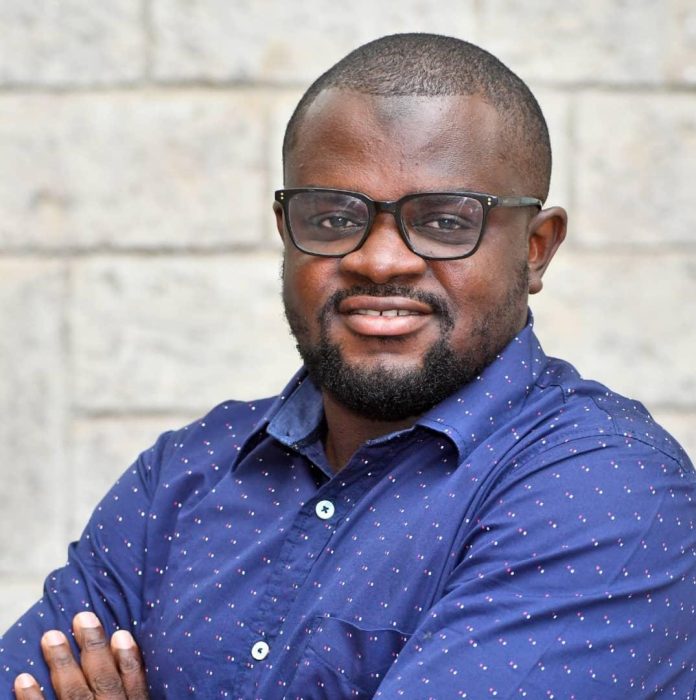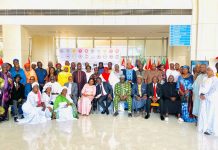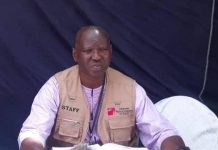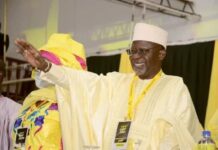By Ndey Sowe
The National Youth Parliament, The Gambia (NYP) has raised serious concern over the stark gender disparity in the list of qualified candidates for its upcoming elections, describing the imbalance as one that “cannot go unnoticed.”
“Of the 146 qualified candidates, only 23 are female while 123 are male; a stark gender disparity that cannot go unnoticed,” said Baboucarr Nyang, Chairman of the Electoral Committee of the National Youth Parliament, during a press conference held on Thursday, 29 May 2025, to share key updates on the National Youth Parliamentary Elections.
According to Mr Nyang, the gender representation across regions shows a consistent trend of male dominance: West Coast Region has 39 candidates (32 male, 7 female), North Bank Region 21 (19 male, 2 female), Kanifing Municipality 25 (16 male, 9 female), Upper River Region 16 (15 male, 1 female), Central River Region 28 (26 male, 2 female), Lower River Region 17 (16 male, 1 female), and Banjul 3 (2 male, 1 female). This reflects a national participation rate of 85% male and 15% female.
“While we celebrate every nomination and the bravery it takes to step forward, we must confront the sobering reality that this marks a serious retrogression for the National Youth Parliament. Our current cohort stands proudly at 47% female representation; a record we have championed with pride as a symbol of progress and inclusion,” Mr Nyang stated.
Describing the decline in female participation as more than just a statistic, Mr Nyang called it a challenge that demands urgent reflection and action. “Therefore, this sharp decline in female participation is not just disappointing; it is a call to action. It challenges us to dig deeper into the barriers that young women face in accessing political spaces. It compels us to reflect on how our systems, support networks, and societal expectations may be failing them. We cannot and must not allow this backslide to define us.”
Calling on society at large to act, he urged: “We urgently call upon all stakeholders—civil society organisations, government agencies, educational institutions, traditional leaders, families, and development partners—to rally together to invest meaningfully and intentionally in preparing and encouraging young women to pursue public leadership roles. Let us break down the barriers, amplify the voices of young women, and ensure that the next NYP election cycle reflects our true national commitment to gender equity and inclusive democracy.”
Mr Nyang disclosed that 176 nomination forms were issued to aspiring candidates across all seven administrative regions. These forms, he said, represented more than paperwork—they were symbols of hope and belief in youth leadership. Out of these, 149 were filled and submitted, demonstrating strong interest from young Gambians in the democratic process.
Of the 149 submitted, 146 candidates were vetted and qualified. Mr Nyang explained that the vetting process was rigorous and guided by the NYP Constitution, its Standing Orders, and bylaws. “Every form submitted underwent a detailed scrutiny process to verify the validity of information, compliance with eligibility criteria, and adherence to nomination protocols.”
Three candidates, however, were disqualified. One was found to have submitted false identification by impersonating another individual with a similar name, an act Mr Nyang described as a “grave breach of ethics.” Two others were disqualified for failing to submit nomination letters and fabricating critical information, including phone numbers.
“We reiterate that our process prioritises integrity over convenience. Every candidate must earn their place through honesty, compliance, and merit,” Mr Nyang emphasised.
He further noted that the election process began with a national announcement, which set the tone for months of enthusiastic preparation, outreach, and innovation. NYP is now calling on all stakeholders, development partners, civil society, state institutions, and the private sector to support, defend, and take ownership of the process.
“The NYP elections are not a ceremony,” Mr Nyang asserted. “They are a platform for civic education, democratic participation, leadership incubation, and social transformation.”
He concluded that the National Youth Parliamentary elections go beyond selecting representatives—they represent the creativity, vigour, and transformative potential of Gambian youth, as well as a collective aspiration for a future where young people are not just participants but key architects of governance, advocacy, and progress.



















